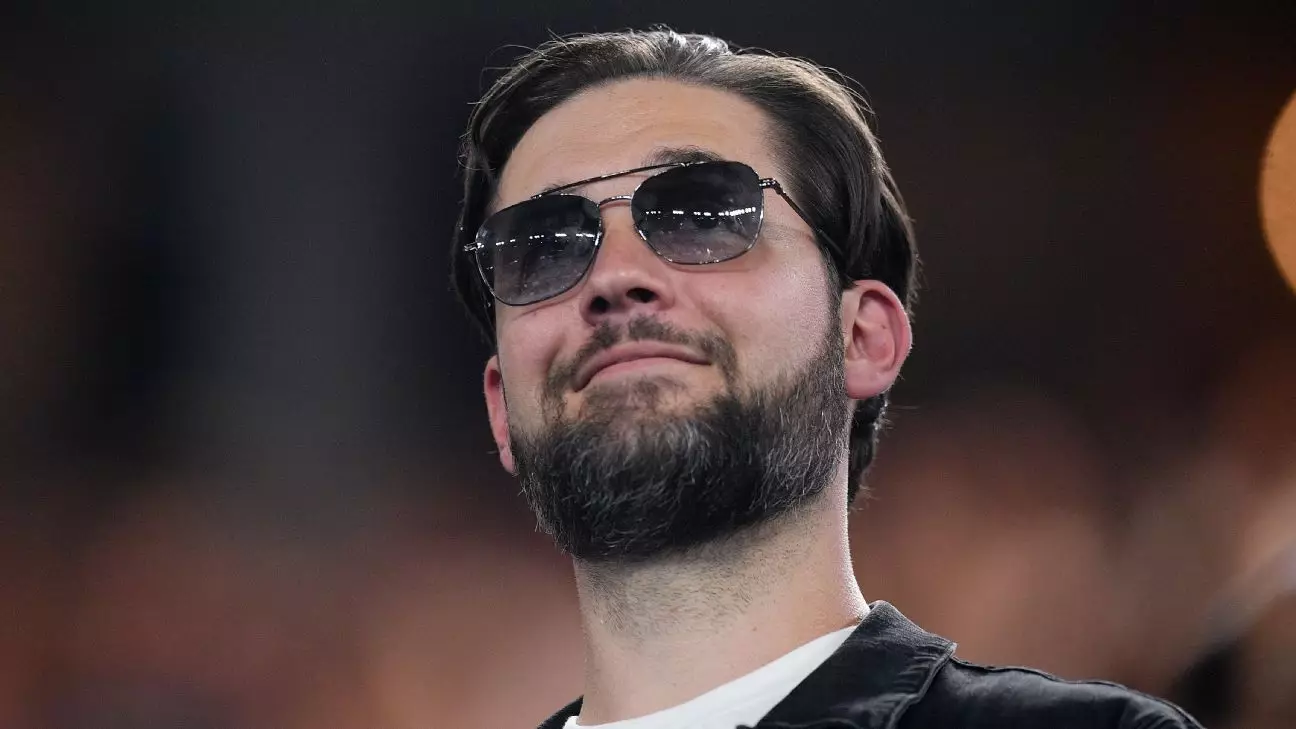The landscape of women’s collegiate athletics is undergoing a transformative shift, significantly propelled by philanthropic efforts that aim to elevate the status and quality of women’s sports. A prime example of this evolution is illustrated through the recent multi-year gift from Alexis Ohanian, a prominent entrepreneur and venture capitalist, to the University of Virginia’s women’s basketball program. This landmark contribution marks a pivotal moment not only for Virginia but also for women’s sports as a whole, heralding new prospects for aspiring female athletes.
Commemorating a legacy of support, Ohanian, an alumnus of the University of Virginia and husband to tennis icon Serena Williams, pledges to boost the competitive capabilities of the women’s basketball program. While the exact amount of the donation remains undisclosed, it has been recognized as the largest in the program’s history. Such a financial commitment positions the program to act as a leading destination for female student-athletes, thereby addressing the ongoing financial and competitive challenges faced in today’s collegiate athletics environment.
The inspiration behind Ohanian’s generosity lies in his genuine belief in and commitment to advancing women’s sports. He articulates that his engagement with women’s athletics began to take root when he founded Angel City FC, a National Women’s Soccer League team. This venture not only spotlighted the potential of women’s sports but also underscored the importance of substantial investment in female-driven programs. His commentary on the rapidly escalating valuations of women’s sports teams, juxtaposed with historical underinvestment, reveals a glaring gap that needs urgent redressal.
Ohanian’s irritation with the disparities in treatment between men’s and women’s sports—exemplified by the widely publicized “weight room debacle” during the 2021 NCAA tournament—further solidifies his commitment to equity in the athletic arena. The stark contrast presented in the conditions provided for male and female athletes raised serious questions about institutional priorities. Ohanian’s efforts aim to dismantle such archaic paradigms, ensuring that women’s sports receive the recognition and resources they rightfully deserve.
Virginia women’s basketball, while historically successful, faces modern challenges that demand innovative strategies and increased investment. The recent financial gift from Ohanian comes at a crucial time as collegiate programs navigate complexities such as athlete transfers, conference fluctuations, and evolving legislation regarding student-athlete compensation. Under the leadership of head coach Amaka Agugua-Hamilton, the program is poised to harness this new funding to not only recruit high-caliber players but also to enhance the overall athletic experience.
Agugua-Hamilton’s optimistic outlook embodies a belief in rejuvenation; despite a challenging record and injuries faced this season, she emphasizes that progress is a process and remains steadfast in her vision for the future. The infusion of resources will allow for the enhancement of training facilities and recruitment strategies, ultimately striving for a return to the national spotlight reminiscent of Virginia’s successful past.
The ripple effects of Ohanian’s generosity extend beyond the confines of Virginia’s campus; they serve as a clarion call for other alumni and business leaders to recognize the untapped potential in women’s athletics. By investing in programs that promote female empowerment through sports, a template for success can be established that resonates beyond any single institution. Ohanian’s sentiments, shared in various interviews, illustrate a deep-rooted belief that both individual and collective victories in women’s sports are achievable through dedication and support.
Investors and alumni are increasingly being invited to look past the historical confines that have limited their engagement with women’s sports. Ohanian’s vision is not solely about creating role models for future generations—it’s about championing a movement that can redefine the landscape of athletics as a whole. The narrative is shifting as public and private sectors begin to recognize the value inherent in investing in women’s sports, creating an environment ripe with potential for female athletes.
The monumental commitment from Alexis Ohanian has the power to redefine the trajectory of Virginia women’s basketball and could inspire similar philanthropic movements across the nation. As emerging female athletes strive for excellence, it is vital that they have access to the resources and support necessary for their development. With Ohanian in their corner, Virginia is not just securing a brighter future for its program but also contributing to an essential restructuring within women’s athletics. The culmination of these efforts ensures a robust foundation for the next generation of female athletes, paving the way for a more equitable sporting landscape.

